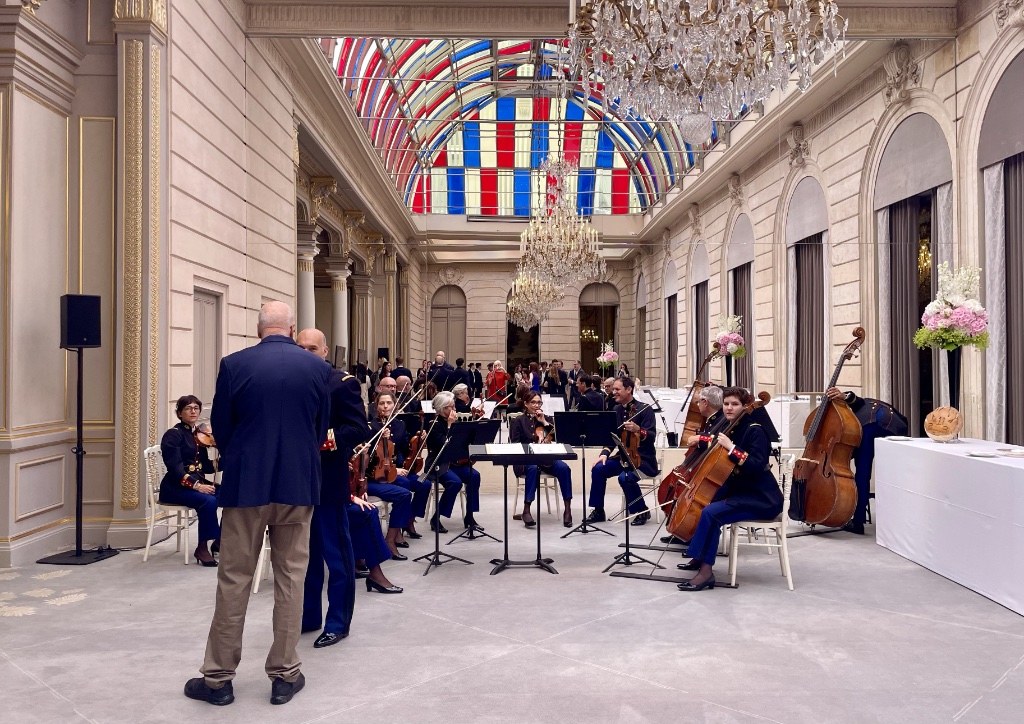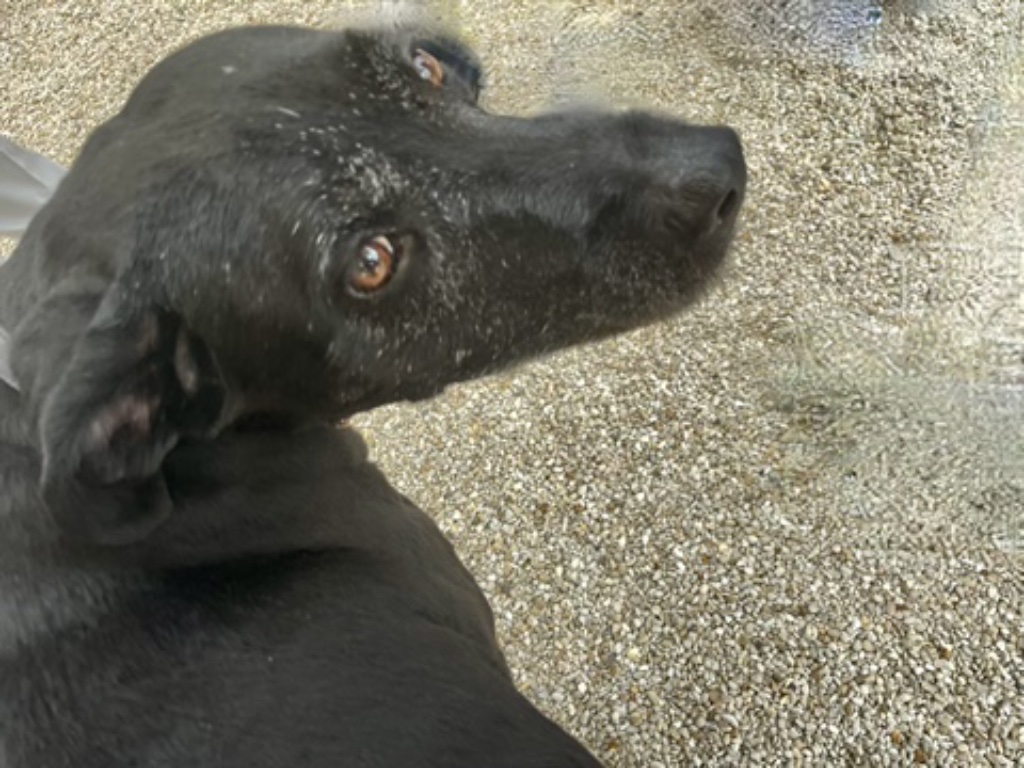On Monday, July 22, French President Emmanuel Macron gathered journalists from around the world who are in Paris to cover the Olympics for a friendly meet and greet at the presidential mansion, the Élysée Palace. We were notified beforehand that this was strictly a “convivial” reception and were warned not to bring cameras or microphones, pretty much ruling out any hard questions about surprise elections and parliamentary coalitions.
It didn’t rule out a little commercialism, however. Before we reached the lavishly decorated hall where Macron would speak to us, we had to pass through a gift shop, where we were given the opportunity to buy, among other things, a Limoges coffee mug (€39), a tote bag (€19) or a little teddy bear (€34,90) branded “Présidence de la République” or even a pair of red, white and blue socks (€18) marked “Coco Rico” (“cock-a-doodle-doo” in French, song of the cock, a symbol of France). (The boutique was a preview of an Élysée Palace museum, boutique and tea salon that will open to the public across the street at 88, rue du Faubourg Saint Honoré on July 30.)
While I passed up the chance to pick up some branded merch, the boutique offered a good way to fritter away some of the time spent waiting to hear from Macron, of which we had plenty, since we had been told in no uncertain terms to arrive between 1:15 PM and no later than 2:30 PM for the 3 PM event. After the boutique, there was nothing to do but snap photos of the gorgeous ceiling and the garden outside, mill around networking with the other journalists and listen to the music provided by a live military orchestra, which entertained us with such nuggets as “Moon River” and “Tea for Two.”
Since no politician has ever been known to arrive on time for such an event, the handsome, smiling president didn’t hit the stage until a little after 3:30, preceded by the protocol master and various dignitaries, including International Olympic Committee President Thomas Bach, who spoke briefly about the upcoming Games and declared Paris “ready” for them. “The stage is set,” he said, and pointed out that the Paris Games will be “more sustainable than ever” and will have equal numbers of male and female athletes. He then recounted his meeting that morning with the 206 national Olympic committees and the IOC Refugee Olympic Team, some of whom are from countries at war with each other. Together, they issued a call for peace. “I have rarely experienced such an emotional moment,” said Bach.

Macron, who had been looking on benevolently as Bach spoke, then took over, to my great relief (I had feared speeches from all the assembled dignitaries, one of whom was the French minister of sports, Amélie Oudéa-Castéra). He spoke, in fairly fluent but not unaccented English, about how the Paris Olympic Games were the realization of a dream he had held since he took office seven years ago. He pointed out that the Olympic Village would provide homes for 3,000 households after the Games are over and that a new aquatic center and a number of new Métro stations had been created. The buzzwords “inclusive” and “sustainable” were thrown in, along with “unique,” which came up over and over. “And we did it all on time and on budget,” he continued, “thanks to what I would call the perfect involvement of everybody on the French team.”
The rest of the talk went on in the same self-congratulatory vein. He noted that the “unique” idea of holding the opening ceremony on boats on the Seine, which will turn Paris into “an open theater” with dancers, orchestras, etc., was at first considered a “crazy” idea, rousing a giggle from the audience, and bragged about the French touch, French technology, French savoir-faire, French gastronomy, etc. France is “pro-innovation, pro-business, and open to the world,” he said, and called the Olympics a chance to make “a contribution to a better world.” “We will do our best until the very last second.”
No questions were taken, but members of the press were allowed to crowd around the president as he slowly made his way to the garden, where wine, cheese and charcuterie were being served. They may not have been able to get any scoops, but a lot of them certainly got selfies with the president. Out in the garden, his charming wife Brigitte was also posing for photos with journalists.
And so the long feel-good press event came to an end, almost. When I tried to leave, I was told by security guards blocking the door that I would have to wait because the president was on his way out of the building. I was held hostage in the palace – along with many other annoyed journalists chomping at the bit to get back to their desks to file articles – for about 15 minutes.
What was the point of this exercise in public relations? It was all about image, of course, of the president and the country, but I had the good luck to glean some vital information from the event by chatting with fellow foodies. I now have the names of a few review-ready restaurants under my belt. Stay tuned for further information.
Earlier in the day, during an appearance at the Olympic Village, the president had referred to a hoped-for “Olympic truce,” i.e., an end to the squabbling among French politicians during the games. Maybe he should hold a similar charm-suasion event for them to keep them quiet and happy, at least for the duration of the Olympic and Paralympic Games.
Favorite






